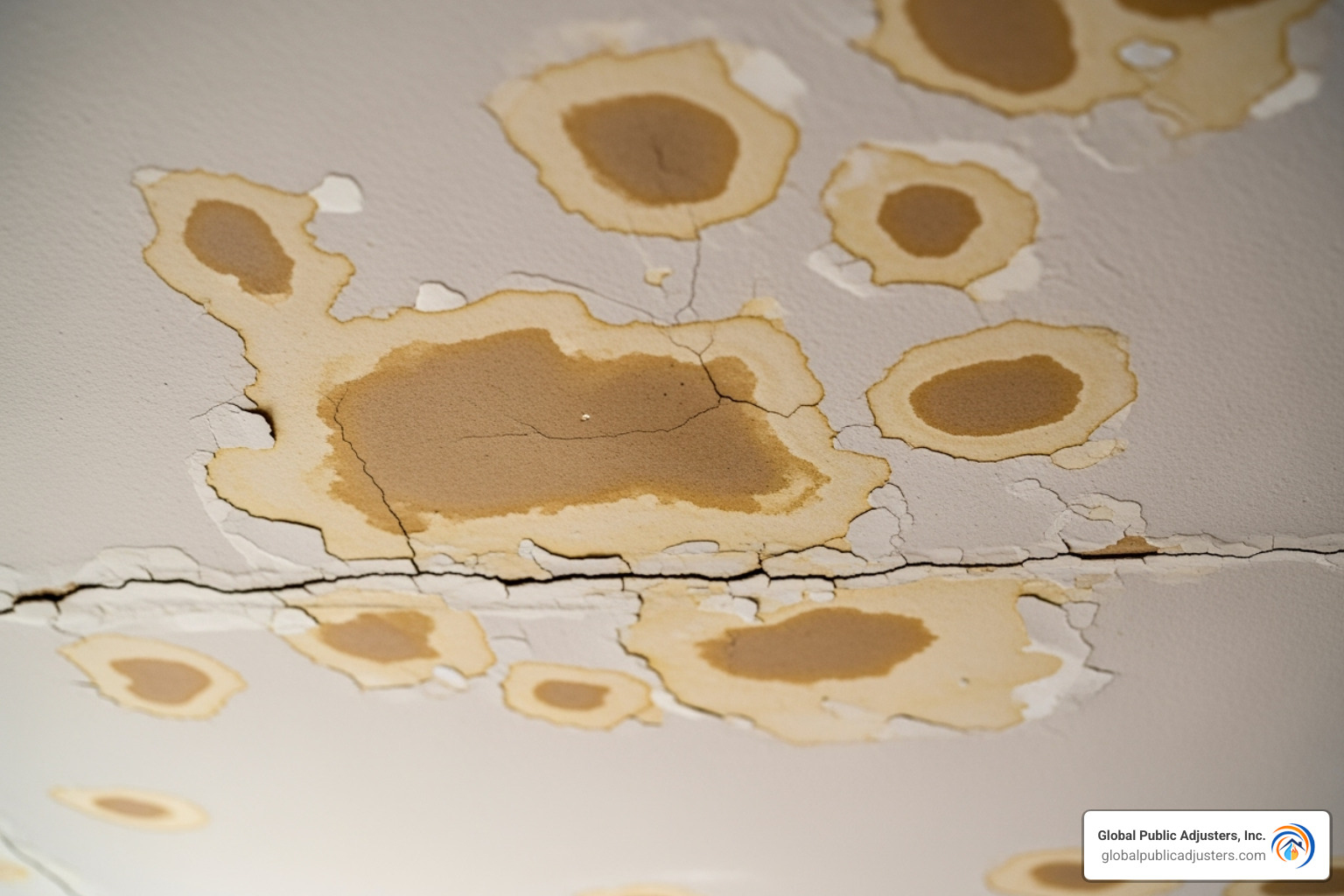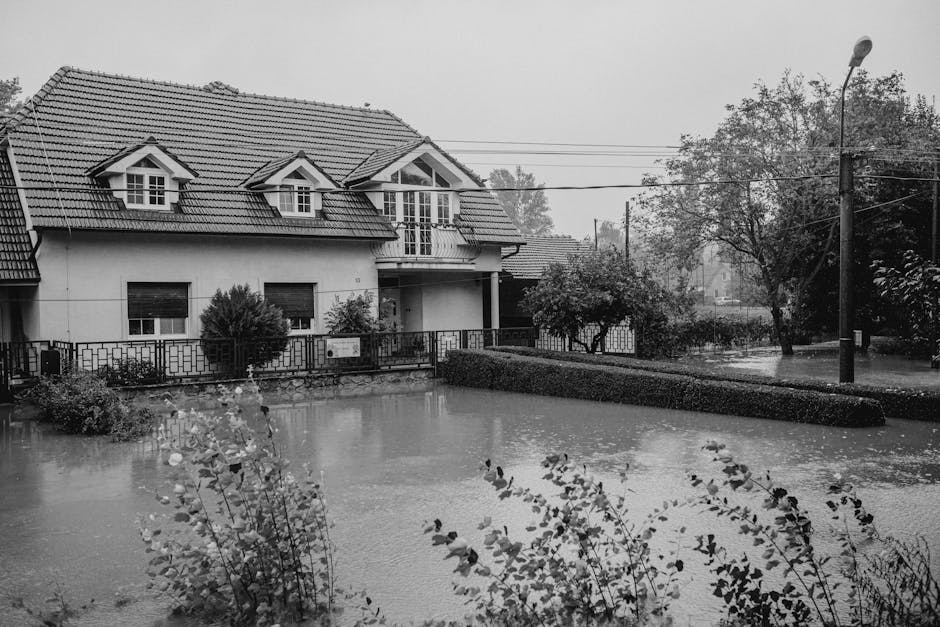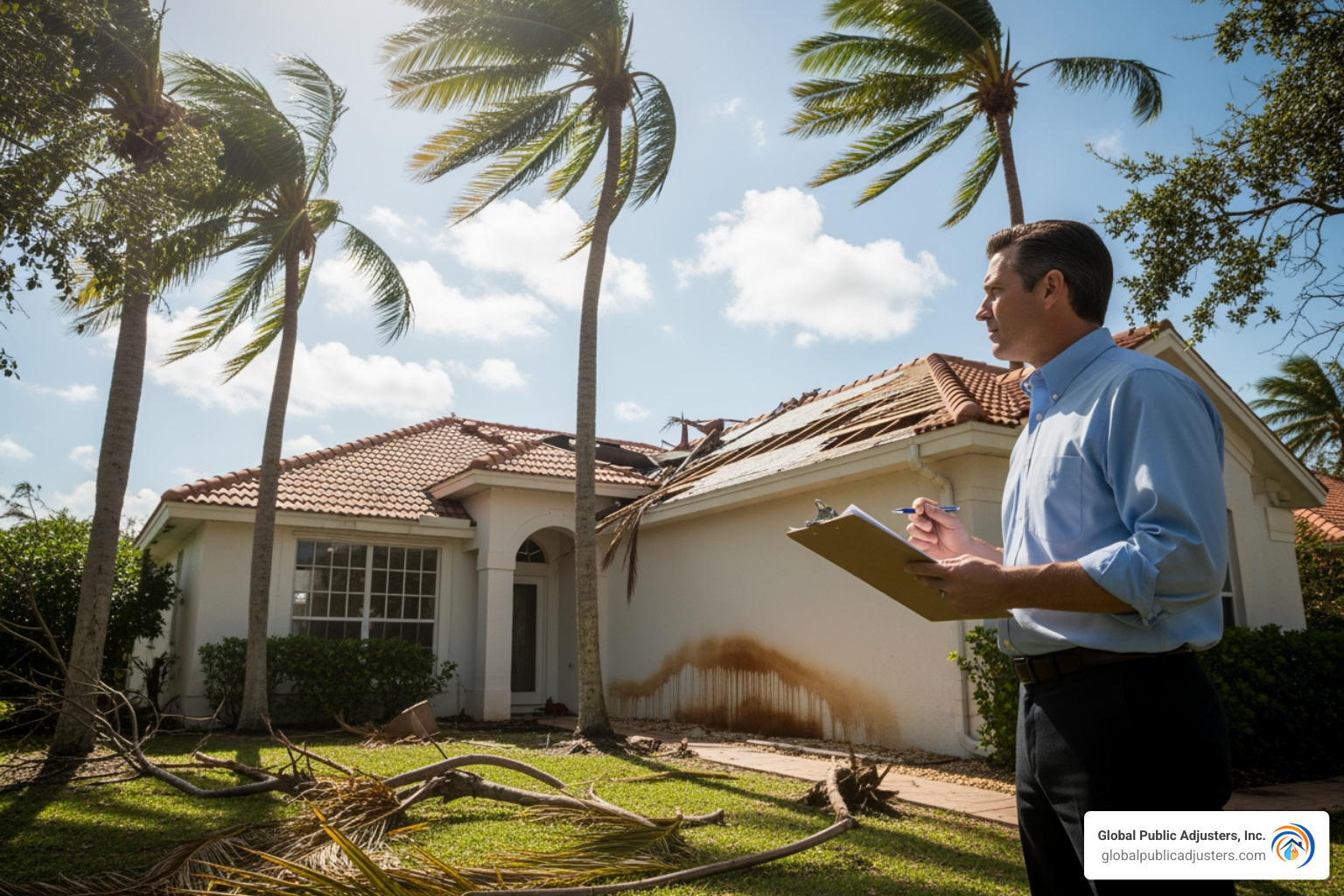House insurance claim for water damage: Top 3 Steps
Understanding Water Damage Coverage: What Every Homeowner Needs to Know
Ahouse insurance claim for water damageis a stressful experience, but understanding your coverage and the claims process makes all the difference.
Quick Answer: How to Successfully Claim Water Damage
- Stop the Water:Immediately shut off the main water valve to prevent further damage.
- Document Everything:Take extensive photos, videos, and detailed lists of all damage.
- Contact Your Insurer:Report the claim within 24-48 hours to prevent secondary issues like mold.
- Know Your Coverage:Sudden, accidental damage is typically covered; gradual leaks and floods are not.
- Work with the Adjuster:Be present for the inspection and provide all your documentation.
- Understand Your Settlement:Know if you have a Replacement Cost (RCV) or Actual Cash Value (ACV) policy.
- Get Professional Help:Consider a public adjuster if your claim is complex, denied, or undervalued.
Water damage is thesecond most common homeowners insurance claim, affecting about one in 60 homeowners annually. The average restoration costs$3,800, but complex claims can easily exceed $13,000. These figures highlight why filing your claim correctly is so important.
Most homeowners insurance policies cover water damage, but only under specific circumstances. The key distinction issudden and accidentaldamage versus gradual damage from poor maintenance. This guide will walk you through filing a successful claim, understanding your policy, and navigating disputes to protect your home and maximize your settlement.
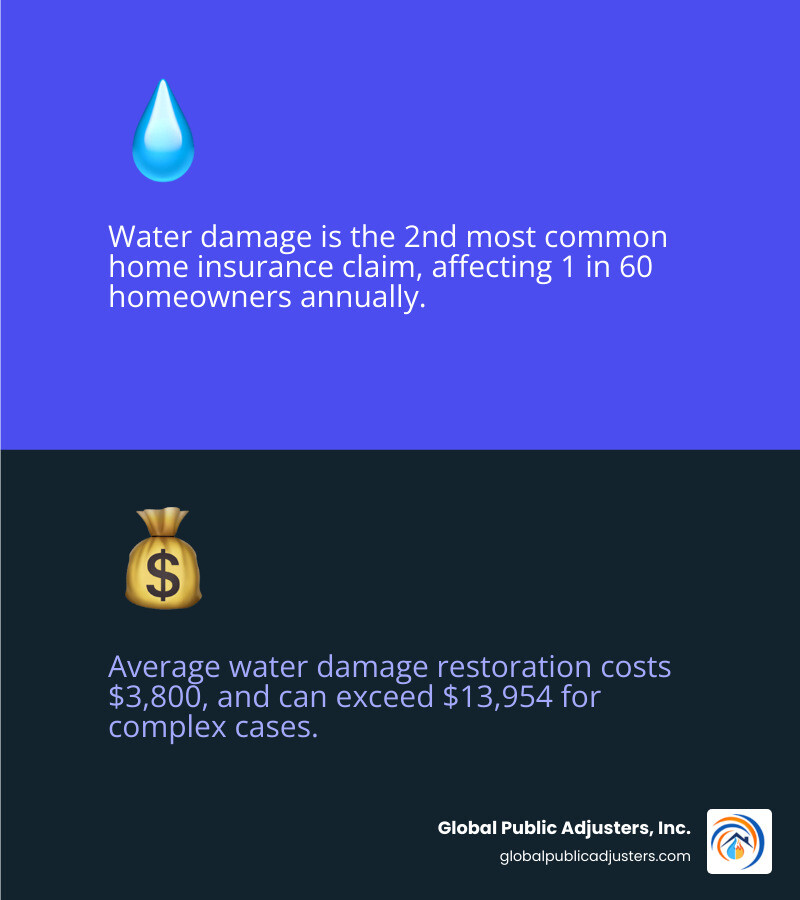
Is It Covered? Understanding Your Homeowners Policy for Water Damage
When facing water damage, the first question is always, “Will my insurance cover this?” The answer depends on where the water came from and how quickly the damage occurred. Filing ahouse insurance claim for water damagecan be confusing, but it boils down to one key principle.
The most important distinction your insurer will make is betweensudden and accidental damage(usually covered) andgradual damage(usually not). A pipe that bursts without warning is sudden and accidental. A tiny leak that drips for months, causing rot and mold, is gradual damage that insurers often deny, arguing it’s a maintenance issue. Being able to spotSome Signs of Water Damage in Your Homeearly can prevent a small problem from becoming a denied claim.
Here’s a quick comparison of what standard policies typically cover versus what they don’t:
| Covered Water Damage (Typically) | Non-Covered Water Damage (Typically) |
|---|---|
| Sudden and accidental burst pipes | Gradual leaks (e.g., slow drip over months) |
| Overflow from appliances (washer, dishwasher, fridge) | Damage from lack of maintenance or negligence |
| Water from extinguishing a fire | Flood damage (requires separate flood insurance) |
| Wind-driven rain through storm-damaged roof or window | Water seepage from ground or foundation |
| Accidental overflow of a tub or toilet | Sewer or drain backup (often requires endorsement) |
| Damage from frozen pipes (if precautions were taken) | Sump pump failure (often requires endorsement) |
Common Covered Scenarios
Your policy will likely cover unforeseen incidents that happen quickly.
Plumbing Disasters:A pipe that suddenly bursts due to freezing, age, or a defect is a classic covered event. The resulting damage to your walls, floors, and belongings is generally covered. If you suspect a problem, it’s important to knowHow to Tell if a Pipe Has Burst in Your Home.
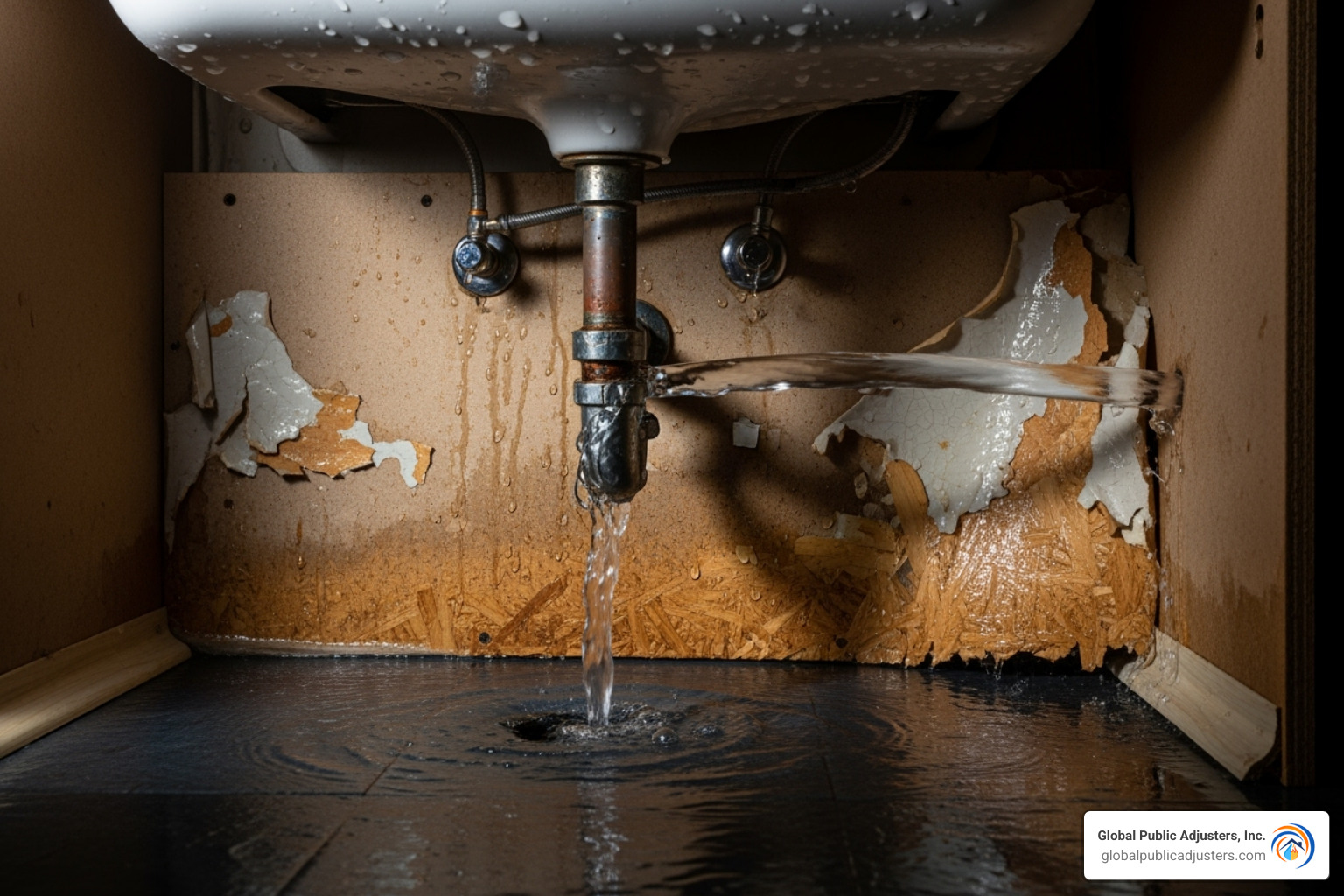
Appliance Overflows:When a washing machine hose gives way or a dishwasher springs a leak, the resulting water damage is typically covered. The policy may not pay for the faulty appliance, but it will cover the damage to your property. For common issues, learn aboutWater Heater Leaks: How to Handle Them.
Storm-Related Roof Damage:If a storm tears an opening in your roof and rain pours in, your policy should cover both the roof repair and the interior water damage. However, if your roof was already in poor condition, the claim might be denied as a maintenance issue. Learn more about navigatingRoof Ceiling Leaks.
Common Exclusions and Necessary Add-Ons
Understanding policy exclusions is crucial to avoiding surprises when you file ahouse insurance claim for water damage.
Flood Damage:This is the most significant exclusion. Standard policies do not cover damage from rising surface water, such as overflowing rivers or storm surges. For this, you need a separate flood insurance policy.
Water Backup and Sump Pump Failure:Sewage backing up into your basement or a sump pump failing during a storm are also typically excluded. Most insurers offer an affordable “water backup and sump overflow” endorsement to cover these common events.
Gradual Damage and Neglect:Insurers will deny claims for damage that occurs slowly over time, such as from a slow pipe leak or deteriorating plumbing. This is considered a homeowner maintenance responsibility. Likewise, if you knew about a problem (like a leaking water heater) and did nothing, your claim could be denied for negligence.
Mold from Neglect:While mold resulting from a covered event (like a pipe burst) may be covered, mold that grows due to a long-term leak or humidity is not. Acting fast is critical, as mold can grow in 24-48 hours.
Your Step-by-Step Guide to Filing a House Insurance Claim for Water Damage
When you find water damage, taking the right steps immediately protects your home and strengthens yourhouse insurance claim for water damage. Follow this action plan to turn a stressful situation into a manageable one. For a broader look at the process, see our guide on theHomeowners Claim Process Orlando, FL.

Step 1: Stop the Water and Prevent Further Damage
Your first priority is mitigation. Your policy requires you to take reasonable steps to prevent further loss, so failure to act could jeopardize your claim.
- Prioritize Safety:If water is near electrical outlets or your breaker box, turn off the power to the area immediately. Never enter standing water if you suspect an electrical hazard.
- Shut Off the Water:Locate and turn off your main water supply valve to stop the flow. Knowinghow to shut off water supply valvesis a crucial homeowner skill.
- Remove Water and Protect Belongings:Use mops, towels, or a wet/dry vacuum to remove standing water. Move furniture, rugs, and electronics to a dry, safe area to begin the drying process.
- Call for Help:If you can’t stop the leak, call a plumber. For significant damage, a professional restoration service has the equipment to dry your home thoroughly. We can connect you with trustedWater Restoration Services Orlandoprofessionals.
Step 2: Document Everything for Your Claim
Thorough documentation is critical for a successfulhouse insurance claim for water damage. Before cleaning up, grab your smartphone.
- Take Photos and Videos:Record the source of the water, the extent of the damage, and everything affected. Capture wide shots for scope and close-ups for detail.
- Create an Inventory:List all damaged items with descriptions, brand/model, purchase date, and replacement cost. Find any receipts or appraisals for valuable items.
- Keep All Receipts:Save receipts for any emergency expenses, such as tarps, fan rentals, or professional services. These mitigation costs are often reimbursable.
- Start a Communication Log:Note the date, time, person, and topic of every conversation with your insurer, adjuster, and contractors.
Step 3: Notify Your Insurance Company Promptly
After taking initial steps, contact your insurance company immediately. Timing is critical.
Call your agent or the insurer’s 24/7 claims hotline with your policy number. Provide the basic details: when you found the damage, the cause (if known), and a general description of what’s affected.
Why the rush? According toFEMA, mold can grow within 24-48 hours. If you delay reporting, your insurer might argue that subsequent mold damage was preventable and deny that portion of your claim. Acting quickly on these three steps sets you up for the best possible outcome.
Navigating the Settlement: Adjusters, Payouts, and Disputes
Once you file yourhouse insurance claim for water damage, the settlement phase begins. This involves working with an adjuster to assess the damage and determine your payout.
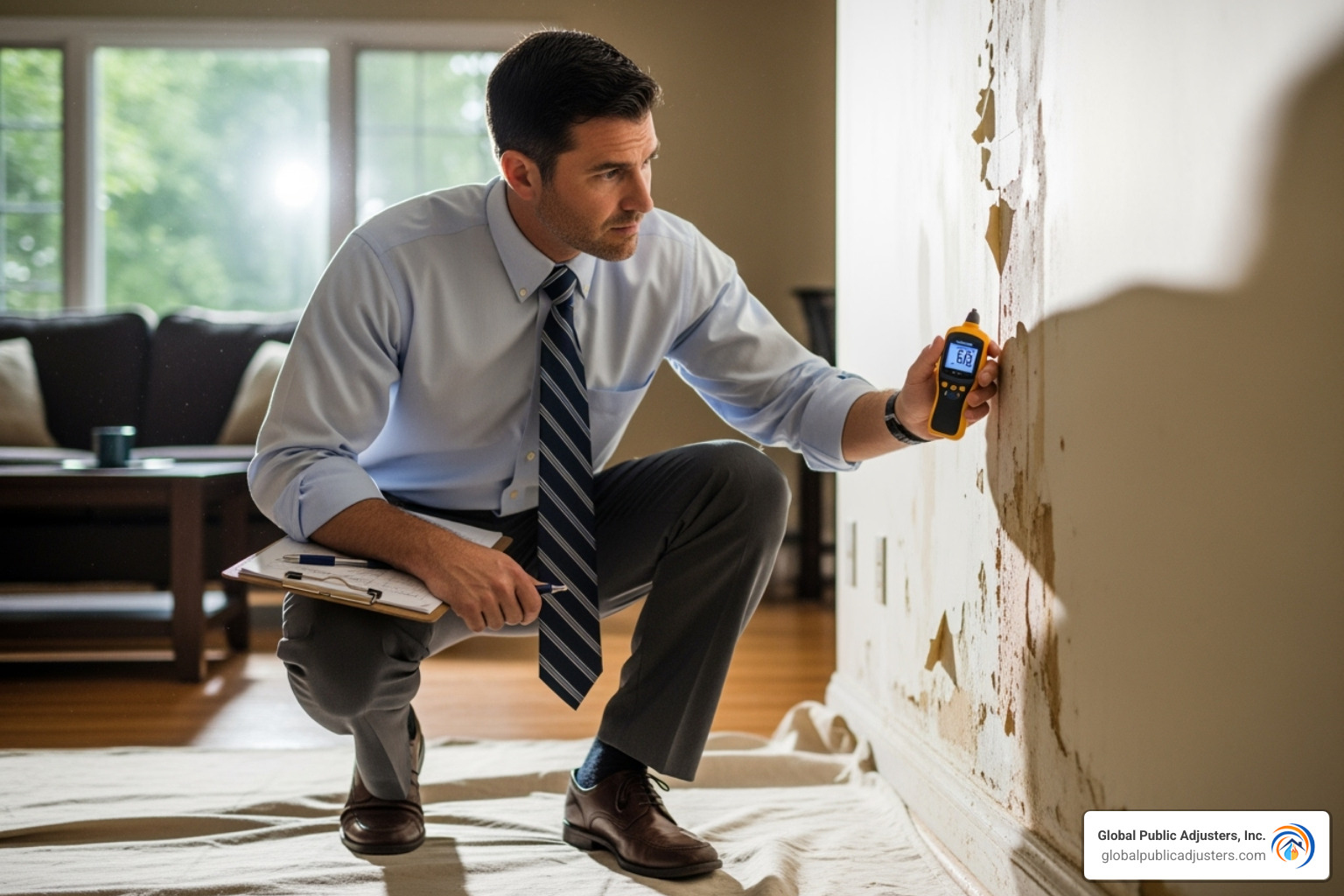
Working with the Claims Adjuster
Your insurer will assign a claims adjuster to investigate the damage, determine what’s covered, and estimate repair costs. It is crucial to be present when the adjuster visits. You know your home best and can point out hidden damage they might otherwise miss, which could lead to a lower settlement.
Provide the adjuster with all your documentation—photos, videos, inventory lists, and receipts. Answer their questions honestly and accurately to help establish the facts of your claim and ensure a smooth process.
Understanding Your Settlement: ACV vs. Replacement Cost
How your insurer calculates your payout can be confusing. There are two main valuation methods:
- Actual Cash Value (ACV):This pays what your property was worth at the time of loss, factoring in depreciation for age and wear. An ACV policy will pay for a 10-year-old floor’s current value, not the cost of a new one.
- Replacement Cost Value (RCV):This pays to replace your damaged property with new items of similar quality, without deducting for depreciation. An RCV policy gives you enough to buy a new, comparable floor.
Even with an RCV policy, insurers often pay the ACV first. The remaining amount, called thedepreciation holdback, is paid after you complete the repairs and provide receipts. Check your policy’s declarations page to see which coverage you have.
What to Do if You Disagree with the Offer
If the initial settlement offer for yourhouse insurance claim for water damageseems too low, do not accept it without question. You have options.
First, review the adjuster’s estimate line-by-line and compare it to your own documentation. Then, get two or three independent, written estimates from licensed contractors to provide objective evidence if the offer is insufficient.
Present these estimates to your insurer and negotiate. Clearly explain any discrepancies and why you believe the settlement doesn’t cover your losses. If you’re hitting a wall or the process is overwhelming, it’s time to seek professional help. A public adjuster works exclusively foryou, not the insurance company. At Global Public Adjusters, Inc., we have over 50 years of experience maximizing settlements for homeowners. We handle the complex negotiations so you don’t have to. Many homeowners don’t realize there areReasons to Hire a Public Adjuster for Property Damageuntil they’re stuck.
In some cases, such as a wrongful claim denial or suspected bad faith (like unreasonable delays), consulting an attorney may be necessary to protect your rights. However, for most settlement disputes, a public adjuster has the expertise to build a compelling case and secure the payout you deserve.
Prevention is the Best Policy: Protecting Your Home
The besthouse insurance claim for water damageis the one you never have to file. Proactive steps can save you money, stress, and the headache of repairs. The Insurance Information Institute notes that regular home maintenance is the best way toprevent water damage, and many insurers offer discounts for preventative measures.
Regular Inspections and Maintenance
A little attention now can prevent major problems later.
- Appliance Hoses:Every six months, inspect hoses on your washing machine, dishwasher, and refrigerator for cracks or bulges. Replace standard rubber hoses with more durable braided stainless steel ones.
- Roof and Gutters:Clean gutters twice a year to prevent water from backing up into your roof or foundation. Inspect your roof for missing or damaged shingles.
- Window and Door Seals:Check for deteriorating caulk and weatherstripping. Resealing these areas is an inexpensive fix that prevents water intrusion during storms.
- Sump Pump:Test your sump pump regularly during rainy seasons by pouring a bucket of water into the pit. Clean it annually to ensure it operates correctly.
- Exposed Pipes:Insulate pipes in unheated areas like basements, crawl spaces, and garages to prevent them from freezing and bursting in cold weather.
Smart Upgrades for Your Home
Consider these investments for an extra layer of protection.
- Water Leak Detectors:These affordable devices sit near water heaters, sinks, and appliances. They sound a loud alarm when they detect moisture, giving you an early warning.
- Automatic Shut-Off Valves:These systems monitor your home’s water flow and automatically shut off the main supply if they detect a leak, preventing catastrophic damage.
- Upgraded Plumbing:In older homes, consider replacing outdated plumbing. Materials likeBroken Cast Iron Pipesare prone to failure and can be upgraded to modern PEX or copper.
- Proper Grading:Ensure the ground around your home slopes away from the foundation to prevent water from seeping into your basement or crawl space.
Frequently Asked Questions about Water Damage Claims
Homeowners often have the same questions when filing ahouse insurance claim for water damage. Here are answers to the most common concerns.
Does homeowners insurance cover mold from a water leak?
It depends on the cause. If mold results from a sudden, covered event (like a pipe burst), remediation is typically covered as part of the water damage claim. However, if mold grows from a slow, unaddressed leak or general neglect, it will almost certainly be denied. Be aware that even when covered, most policies have a specific, and often low, coverage limit for mold remediation (e.g., $5,000-$10,000). Acting fast and addressing issues likeSome Signs of Bathroom Water Damageis critical.
Will filing a water damage claim increase my insurance premium?
It can. Filing a claim signals to your insurer that you are a higher risk, which can lead to increased premiums. The impact depends on the severity and frequency of your claims. For minor damage that is only slightly more than your deductible, you might consider paying out-of-pocket. For significant damage, however, you should always file a claim—that is what insurance is for.
What is the difference between water damage and flood damage?
This is a critical distinction.Water damagerefers to water that originatesinsideyour home (e.g., a burst pipe, appliance overflow).Flood damageis caused by rising surface water that enters your home from theoutside(e.g., overflowing rivers, storm surge). Standard homeowners policies explicitly exclude flood damage. To be covered for a flood, you must purchase a separate flood insurance policy.
Get the Payout You Deserve for Your Water Damage Claim
Dealing with ahouse insurance claim for water damageis overwhelming, but you don’t have to do it alone. Remember to act fast, document everything, and understand your policy’s distinction between sudden and gradual damage.
When it’s time to work with your insurer, know that you have the right to negotiate and challenge a low settlement offer. If the process becomes frustrating or your claim is denied, professional help can make all the difference.
At Global Public Adjusters, Inc., we have over 50 years of experience fighting for homeowners. We know the tactics insurance companies use, and our job is to maximize your settlement and take the burden of the claims process off your shoulders. You shouldn’t have to settle for less than you deserve.
If you’re dealing with water damage and need expert guidance to ensure you receive a fair settlement, we’re ready to help.
Contact us for help with your Water Damage Claim in Orlando. Let our experience work for you.

